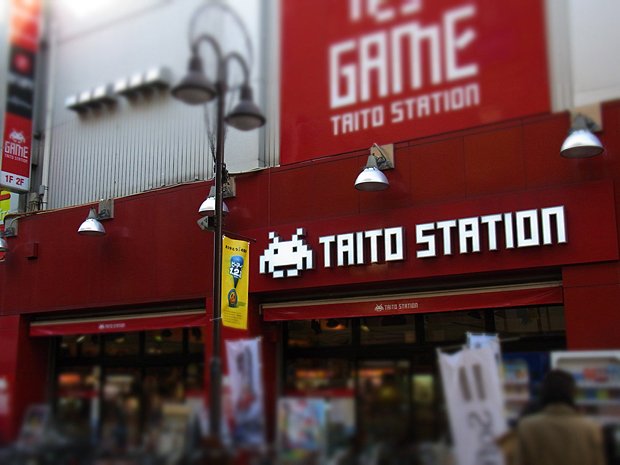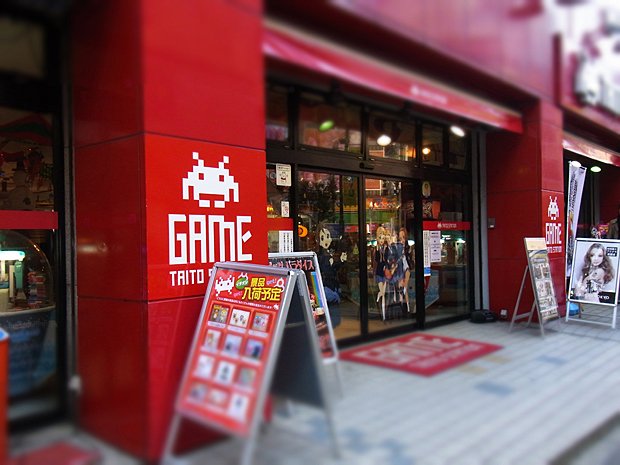Plus Alpha: Silver medalists
A last-ditch effort to save Japan’s game centers?

Plus Alpha is a weekly column that explores life in Japan from the perspective of American expatriate and game-industry veteran Jarik Sikat. Having worked in numerous areas of the game industry since 1994, Sikat relocated to Japan in 2010.
Between 2004 and 2009, the number of game centers across Japan, as well as their total sales, dropped by more than 20 percent, according to the Japanese Amusement Machine Manufacturers Association (JAMMA) via the Asahi Shimbun newspaper. The finger is being pointed not only at home consoles, but also at the nation’s declining birth rate.
Japan has just recorded its slowest period of growth ever. However, that actual growth is being attributed solely to the increased number of foreigners who have resettled in Japan. According to the country’s most recent census data, 23 percent of the nation’s population is aged 65 and above, while a mere 13 percent are under the age of 15. In comparison, just 13 percent of the US is 65 and over, while those 18 and under comprise 24 percent of the American population.
Not too long ago, I wrote about the transformation of Japanese game centers, or “geisen,” but just recently I came across a story from the Asahi Shimbun, which explained how some of the nation’s game-center operators are rechanneling their efforts to find the silver lining in a looming cloud of bad news.

According to the Shimbun piece, about two years ago a Taito center in Tokyo noticed that an increasing number of its daytime customers had become senior citizens, to the tune of 80 to 90 percent. Rather than remain cocooned at home, these senior gamers discovered the joys of the game center. They weren’t playing Tekken Tag Tournament 2, but they were spending their cash on medal games. They were also in it for the long haul, bringing with them not only thermoses of tea, but complete “bento” (Japanese boxed meals). The gamers, many of whom have become widowed, discovered newfound friends as well.
Realizing that a game center filled with seniors ready to spend was way better than an empty game center, and way, way better than a shuttered one, the Taito operator capitalized on the opportunity by adding more comfortable “tatamijiki” (benches covered with traditional straw mats) and offering blankets to its patrons.
Operating around 200 game centers throughout Japan, Namco began providing further incentives to entice senior gamers to its locations, including “bring a friend” days, during which the centers double the number of medals players receive at no additional cost to others. Namco also introduced massage chairs at select shops.
Sign up to the GamesRadar+ Newsletter
Weekly digests, tales from the communities you love, and more
The Shimbun piece also noted that game center operator Adores this year began offering complimentary “chagashi” (teacakes or sweets) as a service to its senior clientele at some of its locations. In addition to further expanding the number of medal games it offers, the operator is also adopting a practice already common at Japanese banks and post offices, by loaning out “rougankyou” (reading glasses) for use at its game centers.

Perhaps you may not even need those reading glasses. Konami, one of Japan’s leading manufacturers of medal games, is increasing the size of the on-screen text instructions for its machines.
Upon coming to Japan, I didn’t even have a chair or table to study on. It’s not that we couldn’t afford them, it’s that we had little time to look for the just the right set. So I did most of my studying at a nearby department-store restaurant and at a community-center study lounge. At the restaurant, it wasn’t uncommon to see groups of six or more students, still in their high school blazers and ties, Monster Hunting on their PSPs. In the lobby of the community center, it was the same scene replayed with a slightly younger crowd.
If the declining numbers of Japanese youth are further parting ways with game centers in favor of handhelds and senior gamers are taking their place, I’m not complaining. It’s a healthy opportunity for both the seniors and the businesses. Perhaps in a few years, when the kids get older, they’ll take their dates to game centers. Plus, I think we can agree that having an open game center filled with UFO catchers, photo booths and a variety of games is much more fun than having none at all.
Let’s hope they stay open long enough so I can play Tekken Tag Tournament 15 on a jumbo-sized screen. I don’t like wearing reading glasses.
Jarik Sikat has worked in the videogame industry in areas ranging from localization and product development to public relations and marketing. As a freelance journalist and writer, his work has appeared in PlayStation: The Official Magazine, Official Xbox Magazine and Newtype USA.



